Are you new to cars and engines? Wondering which oil is suitable for your vehicle?
In this article you’ll find the answers to all of your questions about synthetic oil to help you decide if it’s right for you.
Over the years we’ve heard so many questions about motor oil, and synthetics in particular – a lot of the time it was us asking the questions – so we thought we’d put together a comprehensive FAQ guide to help others, just like us, out.
First of all, lets start with explaining what synthetic oil is.
 Well, it’s a lubricant, an organic substance, consisting of artificially made chemical compounds.
Well, it’s a lubricant, an organic substance, consisting of artificially made chemical compounds.
Synthetic oil is made in the lab, thus each manufacturer takes different approaches.
Most synthetic motor oil is actually made mostly from ordinary petroleum, as the primary feed stock. The molecules are highly modified, in terms of size and shape, so as to work better as lubricants and additional atoms of other kinds are added to make these new molecules work even better.
Zinc for instance may be added as an anti wear agent, and other chemicals are added to help neutralize acids formed by combustion of gasoline or diesel fuel, etc.
Some synthetic oil is made entirely from other synthetic molecules which may or may not have been manufactured using crude oil as one of the feed stocks.
Not all synthetics are formulated the same way which is why not all of them provide the same protection.
As a result, we have different types: synthetic blend oil; and full synthetic. Here is the difference between the two.
1. Synthetic Blend Oil
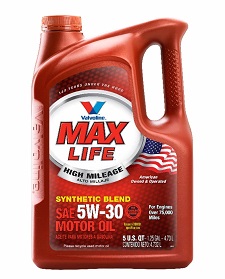 Synthetic blend oil is a mix of conventional motor oils and synthetic base stocks.
Synthetic blend oil is a mix of conventional motor oils and synthetic base stocks.
It was first introduced by Mobil in 1966, and is typically engineered to offer similar benefits as its full synthetic counterparts, but at a much lower cost.
Because of the added synthetic base stock, you are going to get more performance and protection than you would by using a conventional oil alone.
Semi-synthetic motor oils are also not fully regulated by clear cut standards regarding the concentration of mineral or synthetic compounds.
As a result, great care has to be taken when choosing the exact composition that would offer a suitable level of performance when it comes to your own vehicle.
They’re less volatile, so they evaporate far less, which reduces oil loss.
2. Full Synthetic Motor Oil
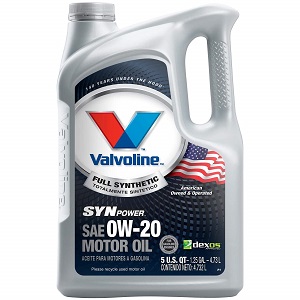 Full synthetic motor oil is more frequently used and has a synthetic base stock mixed with a variety of additives that boost the performance of the oil.
Full synthetic motor oil is more frequently used and has a synthetic base stock mixed with a variety of additives that boost the performance of the oil.
While all synthetics on the market may offer a higher level of protection than conventional or synthetics blends, not all synthetics are equal.
Each synthetic brand uses a mix of high-performance fluids and additives. How these formulations come together results in various protection levels and attributes.
Full synthetic compounds are known to increase the odds that your car will live longer, they have better machining and metallurgy and better protection under warranty and longer drain intervals.
However, full synthetics are about 30% more expensive than the average synthetic blend, and their increased life span doesn’t always compensate for that cost.
 Most of you know, that synthetic motor oils typically perform better than conventional motor oils in providing protection for your vehicle, but you might not know why.
Most of you know, that synthetic motor oils typically perform better than conventional motor oils in providing protection for your vehicle, but you might not know why.
So, what’s the difference between synthetic and conventional oil?
Visually, you cannot tell the difference between new synthetic and conventional oil. There are two major differences, however.
First, how they are made is a distinction. We’ve explained that synthetic is far more refined than conventional oil.
Second, used motor oil shows a lot thicker and sludgy in conventional oil vs synthetic oil, given the same amount of wear. Synthetic burns cleaner, thickens far more slowly, and has fewer deposits to start.
According to industry tests, synthetic oil engines perform 47% better than engines using conventional motor oil.
Conventional and synthetic motor oils both begin in the ground and are derived from petroleum.
Synthetic oil is not only refined but also distilled, purified and broken down into its basic molecules.
This process not only removes more impurities from the crude oil but also enables individual molecules in the oil to be tailored to the demands of modern engines.
These customized molecules provide higher levels of protection and performance than conventional oils.
As oil circulates through your engine it can pick up deposits.
1. Sludge Reduction
Over time, conventional oils can sometimes form sludge, which can reduce your engine’s efficiency and, ultimately, reduce the life of your engine.
Synthetics contain fewer impurities compared to conventional motor oils and can better resist the formation of sludge thereby preventing deposits from forming in your engine.
2. Durability
In the extreme environment of your engine, components can wear and break down.
Your motor oil is the protective barrier between these components. As conventional oils break down, their ability to prevent engine wear diminishes.
Synthetics, on the other hand, retain their wear protection properties for a much longer time, increasing engine life.
With conventional oils, it takes more time until they are able to flow smoothly through the engine.
3. Performance In Extreme Temperatures
 During the cold winter months, or if you live in an extremely cold environment, this flow process takes even longer.
During the cold winter months, or if you live in an extremely cold environment, this flow process takes even longer.
Synthetics, however, are engineered to flow quickly even at low temperatures, and they start protecting your engine right after you start your car.
When running, engines tend to get very hot. Over time, the high temperatures in your engine can cause conventional motor oils to break down or evaporate exposing your engine to wear.
Synthetic oils are engineered to resist these high temperatures, which is especially important if you’re driving in hot climates.
 You might wonder, whether it is possible to mix the two kind of oils – synthetic and conventional.
You might wonder, whether it is possible to mix the two kind of oils – synthetic and conventional.
Manufacturers state, that it should be fine to mix oils and it is unlikely anything bad would happen because the oils are compatible with each other.
Many oils are a blend of natural and synthetic oils. So, if you are low on oil, don’t be afraid to add a bit of synthetic if you are using regular oil or even regular oil if you are using a synthetic.
Despite this, it is not recommended to routinely mix oils because the additives in different products may interact or the oils may become destabilized by the mixture.
You may reduce or negate the properties of the additives.
You could lose the benefits of the more expensive product. So, adding regular oil to your special synthetic motor oil will mean you’ll need to get your oil changed sooner than you would have otherwise.
 Although it is more costly, synthetic has its advantages.
Although it is more costly, synthetic has its advantages.
It is designed to be more effective at: resisting break-down, and thus lasts longer than mineral oil, withstanding high temperatures, flowing in cold temperatures, thus reducing engine wear during frigid startups.
Using synthetic will prolong your oil life and require fewer changes. Another good use for synthetic oil is as a salve for older engines prone to sludge buildup.
The use of synthetic rather than conventional oil is a major benefit to the environment, as used motor oil is a major source of toxic waste in the water.
 The main disadvantage is the price.
The main disadvantage is the price.
Car experts recommend that regardless of whether you use natural or synthetic, you should change your oil every 3,000 miles.
Synthetic engine oil does allow for less frequent oil changes, but this is not recommended, especially for more inexpensive vehicles
After you have heard about the benefits of synthetic motor oil in vehicles, you may be inclined to switch.
Although, there are some risks you should be aware of if you own an older vehicle.
Technology has improved significantly over the years, and most cars on the road today should be able to use either synthetic or regular oil, so long as the proper weight is used.
In fact, some new cars require synthetic motor oil.
However, one exception is with older vehicles, especially those with high mileage.
The seals in those engines may not be able to handle the additives in some synthetic oils. But that doesn’t mean it’s impossible to switch to synthetic in an older car.
There are engine oils specifically designed for cars with 75,000 miles or more on the clock, and you’d be better off using one of these.
Check out our guide to the best high mileage oil for more information.
 Even in motorcycles, you can use any oil that confirms to manufacturer’s viscosity specifications.
Even in motorcycles, you can use any oil that confirms to manufacturer’s viscosity specifications.
Synthetic will last longer before it breaks down and looses it’s initial lubricating, cooling and cleaning properties so you can extend your oil change interval.
Otherwise, any oil or combination of synthetic and mineral oils will do.
This includes non motorcycle-specific oils such as a car and a diesel/truck oils.
 You may know, that you are required to change the oil in your vehicle regularly.
You may know, that you are required to change the oil in your vehicle regularly.
If you use synthetic oil, you should probably change it every 7,500 miles, though some can last 10,000-15,000 miles.
Synthetic does not break down as quickly as conventional oil, so it doesn’t need to be replaced quite as frequently.
Synthetic oil change intervals vary between products and are often dictated by the condition sin which you drive and the stress that you out your vehicle under, so check the manufacturer’s guidelines to be sure.
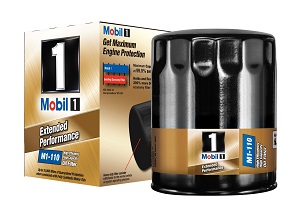 The answer is no, you do not have to use a special type of filter although you can buy synthetic oil filters.
The answer is no, you do not have to use a special type of filter although you can buy synthetic oil filters.
That said they’re not meant solely for synthetic oil – they’re called synthetic because they’re made of more synthetic fibres than normal paper filters.
Typically, synthetic filters do a better job of trapping small contaminates for a longer period of time, meaning less frequent changes.
Look for an oil filter that provides 10,000 mile protection with at least a 98% efficiency, such as the Premium Guard Extended Life oil filter.
 Between gasoline and diesel engines it is the diesel ones that especially need more maintenance and frequent oil changes for maximum protection and cleanliness.
Between gasoline and diesel engines it is the diesel ones that especially need more maintenance and frequent oil changes for maximum protection and cleanliness.
And it’s the best synthetic diesel engine oil that ensures your engine runs appropriately and efficiently even when under pressure.
There are synthetic oils specially built for diesel engines and the best fuel for your car is one that’s compatible with your engine.
Both gasoline and diesel engines have the same base oils while different additives change the oil’s properties. So the difference between the two lies in the number of additives used in the oil.
As diesel engines absorb more carbon while gasoline engines absorb more moisture and tar, diesel oils contain more dispersants and anti-wear additives.
Diesel engines also need oil with a higher viscosity, unlike gasoline engines that only produce more heat. Full sensitive diesel engine oils contain more additives as they work under harsher conditions.
One of the most popular and best synthetic oils for diesel engines is Mobil1, famous for its superior protection in all working conditions. It’s unique and balanced formula keeps your engine running like new.
Being synthetic diesel engine oil, it outperforms conventional motor oils by offering better protection to your vehicle.
Apart from Mobil1 there are a few more brands worth mentioning.
Castrol
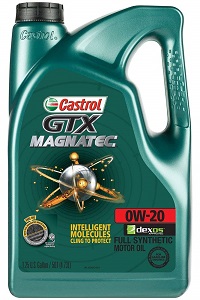 Castrol GTX Magnatec recently came out on top in our recent review of the best 0w 20 synthetic oil (which is specifically designed to help prevent dry start ups in cold weather.
Castrol GTX Magnatec recently came out on top in our recent review of the best 0w 20 synthetic oil (which is specifically designed to help prevent dry start ups in cold weather.
Shell Rotella
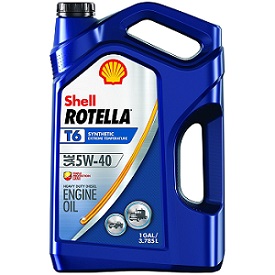 Shell Rotella is also highly recommended because of its wide array of impressive features. Among others, it is preferred because of its low ash technology.
Shell Rotella is also highly recommended because of its wide array of impressive features. Among others, it is preferred because of its low ash technology.
This feature is basically responsible for controlling the blockage of the exhaust, making the oil fuel-efficient and emission-compliant.
It is also worth noting that the base of this product is free-flowing synthetic base oil. This means various benefits, with one of the most significant being its ability to provide protection even in extreme climates.
Even under high temperatures, the right level of viscosity can be retained.
Pennzoil
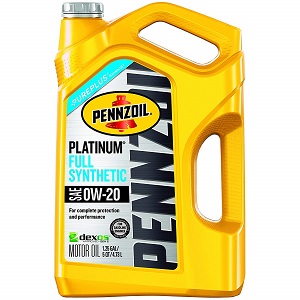 Pennzoil is also a popular brand.
Pennzoil is also a popular brand.
Their motor roil is full synthetic, which means that there are no additives used in its formulation.
Because of its purity, you can expect maximum benefits.
Another significant benefit that should be highlighted is that it provides protection from engine’s loss of power, increasing its reliability.
Choosing the correct motor oil for your car might seem daunting but the best way to start is by checking your owners manual for your car manufacturers suggested oil weight.
Adjust this weight based on the weather and then start choosing a specific motor oil brand by checking out the starburst symbol that indicates the oil has been tested and meets the standards of the American Petroleum Institute (API).
Your next task is to pick the viscosity (thickness) that’s suitable for the temperatures your vehicle normally operates in.
Without a doubt, searching for the right synthetic oil is not going to be an easy task.
Make sure that it is made by a trusted brand, given high rating by other users, and more importantly, appropriate for the engine of your car.
Looking for a good oil filter? Check out our guide to the best on the market right now.
Need a hand getting oil out of your coolant reservoir? No problem, read this.



